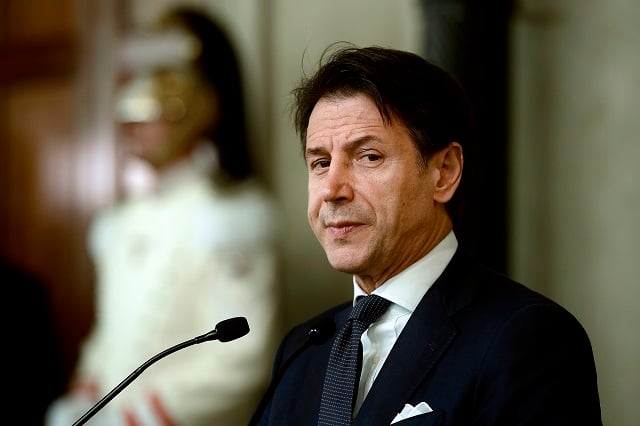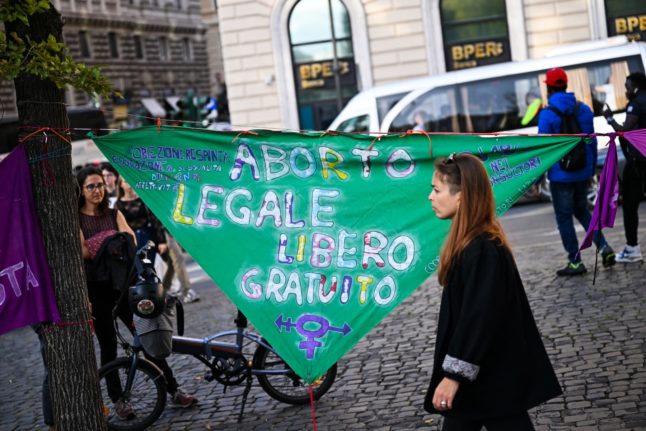The anti-establishment Five Star Movement (M5S) and the centre-left Democratic Party (PD), once bitter foes, agreed on Wednesday to govern in coalition in order to stave off snap elections in the eurozone's third largest economy.
“We must transform this crisis into an opportunity,” Conte said, insisting that Italy would once more become a key player in Europe after 14 months of a populist, anti-EU government. The new government would create “a fairer, more competitive, more united, more inclusive country”.
The former academic, who was chosen as a compromise prime minister last year, was handed a fresh mandate by the president and said he would take a few days for political consultations to ensure a parliamentary majority. Milan's FTSE Mib was up 2.0 percent after his speech.
Conte said it was a “very delicate phase” for debt-burdened Italy, citing an economic slowdown in Europe and trade tensions between the US and China.
“We have to make up for lost time so Italy can play the leading role (in Europe) that a founding country deserves,” Conte said.
TIMELINE: How did Italian politics get to where it is today?
European Commission chief Jean-Claude Juncker sent his “warmest wishes” to Conte and Brussels was “counting on (Italy's) active contribution to the European project,” his spokeswoman said.
The crisis was triggered on August 8th when popular far-right leader Matteo Salvini pulled his far-right League party out of the governing coalition with M5S, calling for fresh elections he thought would make him premier.
Salvini said the new coalition “was born in Brussels to get rid of that pain in the arse Salvini,” and announced a League rally in Rome for October 19th, said it would be “a great day of Italian pride”.
Mattarella has been racing to find a solution to the political turmoil, with Italy under a huge debt mountain and pressured to approve a budget in the coming months. Without a new government at the reins it could face an automatic rise in value-added tax that would hit the poorest families the hardest and could plunge the country into recession.
M5S chief Luigi Di Maio has said the deal with the PD will have to be approved by his party's members in an online vote, which could take place by this weekend.
Conte said he would “immediately get to work on a budget that will counteract the increase in VAT, protect savers, and give a solid perspective of growth and social development.”
He said the new coalition's priorities would include improving infrastructure, boosting renewable energies and fighting tax evasion — but notably did not mention immigration, which has been Salvini's political obsession.
“The agreement means we won't have an election in the autumn and any budget confrontation with Brussels later this year may be less fierce than last,” said Craig Erlam, senior market analyst at OANDA.
“The two parties still very much have their differences and it's unlikely to be a harmonious relationship but it will likely be a better match than the last.”
IN DEPTH: Why do Italy's governments collapse so often?
 Italy's presidential palace in central Rome. Photo: Filippo Monteforte/AFP
Italy's presidential palace in central Rome. Photo: Filippo Monteforte/AFP
Had the PD and M5S been unable to form a solid majority, the president would likely have called an early election for November.
Analysts have warned a M5S-PD deal could favour Salvini in the end, should the hastily forged accord come undone at the seams over the coming months.Both the M5S — which had sworn never to ally with traditional parties — and the centre-left could lose support for getting into bed with a former foe.
“Any new government formed by these unlikely bedfellows has the potential to be a fairly short-lived affair, given that the onus will now fall on a new administration to implement new EU mandated spending reductions of up to 23 billion euros this autumn,” said Michael Hewson, chief market analyst at CMC Markets UK.
“These are not expected to be popular and likely to feed into the populist narrative of Matteo Salvini,” he added.
Far-right leader Matteo Salvini said the new set-up would be fragile and unlikely to last.
“So we have to wait six months or a year to win? We're in no hurry,” he said.



 Please whitelist us to continue reading.
Please whitelist us to continue reading.
Member comments